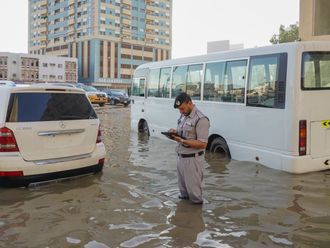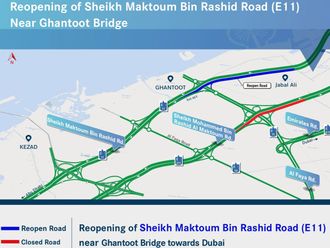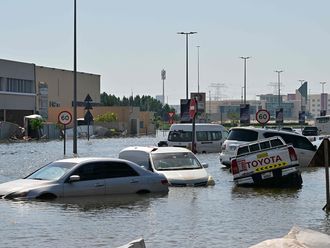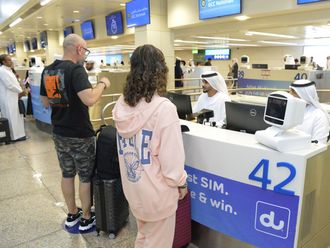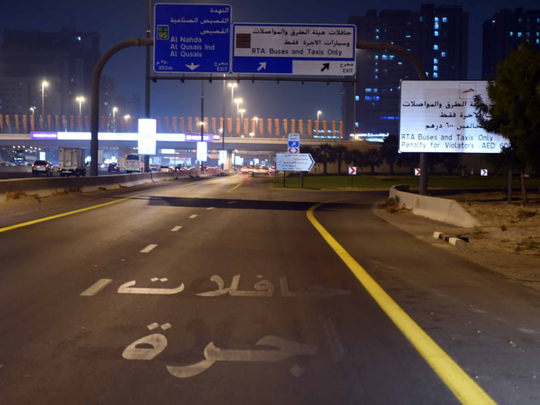
Dubai: Be prepared to pay Dh600 for the misuse of dedicated bus lanes in Al Ghubaiba and Al Mamzar from Tuesday.
The Roads and Transport Authority (RTA) announced on Sunday that the APNR or automatic number plate recognition cameras will be activated from November 1 and fines will be automatically issued against owners of the violating vehicles.
Motorists were alerted a month in advance about the new cameras installed along the bus lanes in Al Ghubaiba and Al Mamzar, in order to raise awareness among all road users.
Adel Shakeri, director of Transportation Systems at RTA, said that private motorists were offered a one-month’s trial to get accustomed to the restrictions.
He added that during the trial period the cameras caught 8,439 violations, but none of these motorists were penalised.
However, the system will start issuing fines for all violations from November 1.
Dubai has seven kilometres of bus and taxi priority lanes spread across different parts of the city.
Last year, the RTA installed APNR on a dedicated bus lane on Naif Road, which helped reduced violations by 88 per cent.
The cameras identify two categories of vehicles, one is white-listed and the other is black-listed.
According to RTA, the white-listed ones are RTA buses, taxis, ambulances, Civil Defence and police vehicles, which are allowed to use the dedicated bus lanes, while all private vehicles are black-listed and will be penalised upon use of the dedicated lanes.
Motorists are allowed a grace distance of 20 metres for exit and entry from side roads, parking as well as drop off areas.
Shakeri said that according to Order No (1) of 2010, dedicated lanes are open only for public buses, taxis, Dubai Police vehicles, Civil Defence vehicles, and ambulances on duty.
“Private vehicles are allowed to use the dedicated lane only when entering or exiting subsidiary roads,” said Shakeri.
Offences can be reported either automatically through the cameras, or manually through Dubai Police patrols.
“If the motorist is fined twice [automatically and manually] for the same offence, only one fine will be collected,” Shakeri clarified. He added that the restriction is aimed at improving efficiency and punctuality of public buses.
According to RTA, the monitoring system has helped improve the speed of RTA buses by 20 per cent, while the dedicated bus lanes also help reduce traffic congestion and operation costs.
Interestingly, RTA is planning to expand the network of dedicated lanes for buses and taxi.
The plan is to have more lanes in the congested areas in Deira and Bur Dubai, with the aim of reducing congestion.
According to RTA, bus lanes are an effective means of reducing congestion in busy areas and promoting use of public transport.
Currently, Dubai has dedicated bus lanes at several locations, in addition to signal priority at Al Ghubaiba bus station.
RTA introduced six kilometres of dedicated bus lanes in Dubai in 2010 on sections of Al Mankhool Street, Al Khaleej Street, Khalid Bin Al Waleed Street and Al Ghubaiba Street.
In 2011, the project covered a section of Naif Street and parts of Ittihad Street in the direction from Sharjah to Dubai near Al Nahda Interchange.


